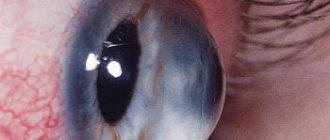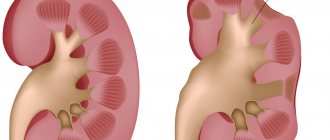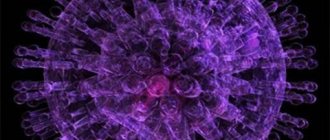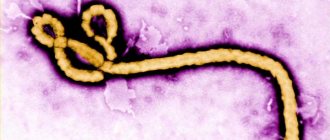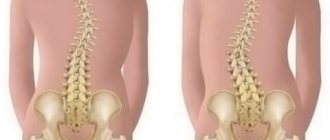Consultation with a neurologist – RUB 1,750.
- What is neurasthenia?
- Causes
- Signs of asthenic disorder
- Types of neurasthenia
- Diagnostics
- Treatment of neurasthenia
- Prevention
With various somatic, neurological and mental diseases, 30-65% of patients experience asthenic disorders Source: Chutko L.S. Neurasthenia / L.S. Sensitive // Medical advice. - 2009. - pp. 23-24. . Asthenia is understood as pathological fatigue, accompanied by a decrease in energy necessary to ensure normal life activity and attention, a sharp decrease in performance that occurs after normal activity. The most common asthenia of psychogenic origin is neurasthenia
.
Causes and risk factors
With neurasthenia, as with other mental disorders, predisposing and provoking factors are distinguished.
Predisposing factors include increased personal anxiety with dependence on stress factors, various types of perfectionism, and the period of recovery after a somatic illness.
The main provoking factors are chronic stressful conditions. First of all, these are increased physical and mental stress, conflicts in the family or at work, long-term illness, lack of regular rest, acute or chronic traumatic circumstances, pronounced unfavorable life changes.
The main psychological conflict underlying neurasthenia is the contradiction between desires and capabilities Source: Chutko L.S. Neurasthenia / L.S. Sensitive // Medical advice. - 2009. - pp. 23-24. .
general characteristics
As we have already indicated above, in modern psychiatry there is no such concept as “neurosis”. More often, this group of diseases is currently called neurotic disorders. Among them, there is one form that occurs relatively more often than others - neurasthenia. The term “neurasthenia” was introduced into medical vocabulary in 1860 by US physician George Byrd. It was then, during the period of rapid development of capitalism, that a wave of disorders associated with chronic fatigue of patients swept across the United States. Oddly enough, the problems of the 19th century are still relevant in our time - people continue to “chase” the same values of life (finance, real estate), forgetting about rest and relaxation.
Neurasthenia is a form of neurotic disorders that is characterized by a combination of high excitability, irritable weakness, disorders of the autonomic system and increased nervous exhaustion.
Symptoms
Neurasthenia is characterized by:
- Increased fatigue, physical fatigue, general weakness after minor mental or physical stress.
- Muscle pain, dizziness, headaches, inability to relax, irritability, dyspepsia.
- Secondary and unexpressed depression and anxiety.
- Increased sensitivity to loud sounds, noise and bright light. There is increased sensitivity to sensations in the internal organs.
- Sleep disorders: difficulty falling asleep, shallow sleep with an abundance of dreams.
- Sexual disorders: decreased libido, premature ejaculation, weakened erection in men, incomplete orgasm, sometimes anorgasmia in women.
Hypersthenic form
The first phase of asthenic neurosis is characterized by the dominance of excitability, irritability, and emotional instability. A neurasthenic person is not restrained in emotions, raises his voice in normal conversation, shouts during an argument or quarrel, and allows insults. The absent-minded attention of the sick person leads to a decrease in the productivity of any type of activity, since he is constantly distracted by irritants and has difficulty returning to the work process. The patient is haunted by dreams related to daytime events and problems. Having difficulty falling asleep, he often wakes up, and in the morning he feels exhausted and unrested.
Types of neurasthenia
The following forms of neurasthenia are distinguished:
- Hyposthenic
- characterized by increased fatigue, decreased performance, drowsiness, exhaustion; - Hypersthenic
- characterized by increased reactivity, excitability, irascibility, and difficulty falling asleep.
Sometimes a form of neurasthenia is identified that occupies an intermediate position between the hypersthenic and hyposthenic variants and is characterized by “irritable weakness.”
Symptoms of pathology
The signs of neurasthenia are specific, which simplifies diagnosis. The most common symptom is headache, which occurs in patients in the evening. They complain of compression of the head on all sides. This phenomenon is referred to by doctors as the “neurasthenic’s helmet.” The second most common symptom is dizziness. Men and women suffering from asthenic neuroses describe it as a feeling of constant rotation inside the head. Furnishings seem motionless to patients. Dizziness worsens during stressful situations, increased physical activity, or weather fluctuations.
Often the pathology is accompanied by dyspeptic symptoms:
- heartburn;
- belching;
- loss of appetite;
- heaviness in the stomach;
- flatulence;
- constipation
Men may experience increased urination and premature ejaculation during sexual intercourse. Women suffer from low sex drive. These symptoms cause patients to feel dissatisfied and feel weak.
Symptoms of the hypersthenic form of neurasthenia are increased irritability, high nervous excitability, emotional lability. Patients easily lose control of themselves and shout at relatives or colleagues. Men and women become intolerant of other people's mistakes and often insult other people. Persons suffering from asthenic neuroses cannot tolerate extraneous sounds - conversations, music, traffic on the street. Irritation occurs when seeing a large number of people or when moving through open spaces.
Patients experience a sharp decline in performance. Its cause is not only physical exhaustion, but also absent-mindedness. The process of inclusion in work requires significant effort and is not always successful.
The second stage of asthenic neurosis is irritable weakness. It develops in patients who were unable to achieve complete recovery during the hypersthenic phase. Signs of neurasthenia may become more pronounced due to the ongoing action of the pathogenic factor. The patient remains irritable, but quickly becomes apathetic due to extreme exhaustion. Screaming or anger gives way to a feeling of powerlessness. Men and women accumulate grievances against others. Attacks of hysterical crying are possible.
The third form of pathology – hyposthenic – is characteristic of anxious and suspicious people with a weak nervous system. Patients are characterized by lethargy, physical exhaustion, and indifference to themselves and the world around them. The mood of children or adults is constantly reduced, passivity appears, and previous interests are forgotten.
Are you experiencing symptoms of neurasthenia?
Only a doctor can accurately diagnose the disease. Don't delay your consultation - call
Diagnostics
A medical neurologist makes a diagnosis based on the clinical picture of the disorder and the patient’s complaints.
A general examination by a therapist is also necessary to rule out other diseases (infections, intoxications, etc.).
Neurasthenia can be a symptom of brain diseases. To exclude them, the patient is sent for computed tomography (CT) or magnetic resonance imaging (MRI). In addition, a rheoencephalograph study (assessment of blood circulation in the brain) can be performed.
Prices
| Cost of treatment for mental illnesses and disorders | |
| Consultation with a psychotherapist - a doctor of the highest category, candidate of medical sciences. | 2500 rub. |
| Consultation with a psychiatrist - a doctor of the highest category, candidate of medical sciences. | 2500 rub. |
| Consultation with epileptologist K.M.N. | 3500 rub. |
| EEG with interpretation by epileptologist K.M.N. | 3500 rub. |
| Consultation with a somnologist | 5000 rub. |
| Repeated consultation with the doctor. | 1000 rub. |
| Psychological testing | 1000 rub. |
| Testing for latent depression (Nuller test). | 500 rub. |
| Screening assessment of anxiety and depression levels. | 200 rub. |
| Individual psychotherapy session, 1 hour. | 3000 rub. |
| Group psychotherapy session. | 1000 rub. |
| Hypnosis session. | 3000 rub. |
| Acupuncture session. | 1500 rub. |
| Transcranial electrical stimulation procedure using the Transair device | 2000 rub. |
| Relaxation session using the Minds Eye device (USA) | 2000 rub. |
| Audiovisual stimulation session using virtual reality glasses. | 2000 rub. |
Make an appointment
Treatment of neurasthenia
Treatment of neurasthenia is impossible without establishing the exact cause. In the patient’s life there are factors that negatively affect his psycho-emotional state: hard work, family difficulties, etc. Without changes in life, therapy may be powerless.
The patient will need consultations with a psychotherapist, as well as possibly drug treatment (antidepressants, tranquilizers).
For the treatment of heart disorders, soothing herbs and tinctures (hawthorn, valerian, etc.) are indicated.
It is also recommended to consult a physiotherapist who will select an effective treatment program using massage, aromatherapy and other techniques.
Difference between depressive neurosis and other neurotic disorders
First, let's find out what the differences between depression and neurosis are. Neurosis is a general concept for a whole group of psychogenic disorders, the appearance of which is caused by regular exposure to external stress factors. In the early stages of the disease, it is enough to eliminate these factors or change your attitude towards them for recovery to occur.
Depression is an affective disorder, that is, a mood disorder, which is characterized by a lack of ability to enjoy the positive phenomena of life, an unreasonable depressed state for a long time, a significant loss of strength and extreme fatigue. With depression, external factors are basically just a catalyst that triggers a serious illness formed by endogenous causes, including hereditary ones. The combination of a depressive and neurotic clinical picture is characteristic of depressive neurosis, but in a significantly softened version.
Despite apathy and a decrease in mental activity, the patient remains able to work, and in some circumstances is even absorbed in work; general lethargy has virtually no effect on the results of work. Apathy extends more to relationships in society - there is no desire to communicate or attend crowded meetings. The skills of habitual socialization themselves do not disappear, interest in them simply dries up.
There is no total depression; patients diagnosed with depressive neurosis do not lose self-control and are capable of adequate communication and assessment of what is happening. They do not have the painful feeling of a lack of feelings and a complete disappearance of emotions and interest in life. The sleep disturbances characteristic of ordinary depression in the form of early awakenings with the inability to resume sleep again are absent or only rarely appear. During the day, the condition may worsen slightly in the evening, while with a purely affective depressive disorder, on the contrary, it becomes a little easier in the evening. The presence of somato-vegetative disorders in this disease forces one to turn to general practitioners (most often therapists, neurologists) who treat common diseases, who can prescribe symptomatic treatment that does not correct the situation and prolongs the course of the disease.
As a differentiation from similar disorders, morning fatigue, characteristic of asthenic neurosis, is not accompanied by feelings of melancholy, restlessness and anxiety, as with depression, just as there is no extreme fixation on symptoms and the search for imaginary diseases, as is the case with hypochondria.
In general, the symptoms are much milder than the clinical picture of classical depression, in which the future is hopeless. Neurotic depression allows you to plan, see prospects and strive to achieve them, while bracketing the negativity of the existing unfavorable state of affairs. All these features and subtle differences can only be noticed by an experienced psychotherapist in order to differentiate depressive neurosis from other types of neurotic and affective disorders.
Prevention
To prevent the appearance of neurasthenia, a person needs to follow a routine, rest, get enough sleep, and avoid stress. Walking before bed, taking vitamin and mineral complexes, and a change of environment have a positive effect.
A team of medical doctors will provide qualified assistance in the treatment of neurasthenia and other nervous disorders. You can make an appointment by phone or through the form on the website.
Sources:
- Bozhko S.A. Experience in the use of non-medicinal methods (psychotherapy, herbal medicine and reflexology) in the treatment of neurasthenia / S.A. Bozhko, N.A. Tyuvina // Neurology, neuropsychiatry, psychosomatics. - 2014. - pp. 19-24.
- Veltishchev D.Yu. Neurasthenia: history and modernity / D.Yu. Veltishchev // Neurology, neuropsychiatry, psychosomatics. - 2011. - pp. 9-12.
- Chutko L.S. Neurasthenia / L.S. Sensitive // Medical advice. - 2009. - pp. 23-24.
- Chutko L.S. Neurasthenia: state of the problem and approaches to therapy / L.S. Sensitive [and others] // Neurology, neuropsychiatry, psychosomatics. - 2013. - pp. 42-45.
Why you should visit a MedicCity neurologist
If you experience psychological discomfort and tension, feel trapped, and cannot relax even in your sleep, do not delay visiting a doctor. Delicately and professionally, our specialist will help you understand the causes of your condition and give all the necessary recommendations. Don't be left alone with your troubles!
We provide assistance for various neurological diseases, as well as disorders in the functioning of other organs and systems of the body. If necessary, you can get advice from another specialist - doctors from over 30 specialties conduct appointments at the clinic every day.
Consequences of the disease
The consequences of neurasthenia can be the following diseases and abnormalities:
- prostatitis;
- digestive disorders;
- chronic diseases worsen;
- severe sleep problems;
- dysbacteriosis;
- herpes;
- decline in hemoglobin levels;
- skin diseases develop (neurodermatitis, psoriasis);
- severe memory impairment.


